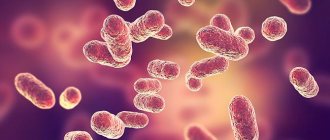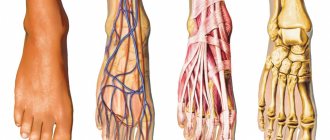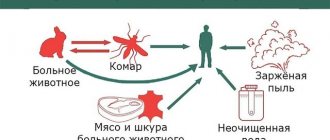Hygiene is a very broad concept that includes almost all aspects of human life. This science is aimed at preserving and improving health and life. Hygiene includes a number of rules that a person must follow at home, at work, and in public places. Next, the features of personal hygiene will be considered.
Body hygiene
The skin performs a protective function for the body. Keeping the skin clean is very important, since it is entrusted with certain functions: thermoregulatory, receptor, metabolic, respiratory, immune.
Rules:
- Wash your face every day under warm water. Water temperature is 36-37 degrees. In 7 days, human skin secretes 6 liters of sweat and 250 g of sebum. To prevent skin functions from being impaired, such secretions must be washed off daily. The skin is an ideal environment for the proliferation of pathogenic bacteria, fungi and other infections. Soaps and bath and shower products can be purchased at our pharmacy;
- Wash with a washcloth at least once a week;
- Keep hands and nails clean. A person takes food with his hands, along with which harmful microorganisms can enter the body. After using the toilet, going outside, or contacting animals, you must wash your hands. When outdoors, you can wipe your hands with wet wipes, which eliminate some of the bacteria;
- Wash your feet daily under warm water and soap;
- After taking a bath or shower, you should use deodorant;
- Don't forget to shave your armpits. Hair in this area of the body serves as a favorable environment for the growth of bacteria, and it also provokes the appearance of an unpleasant odor.
Do not dry
Avoid drying out your skin. The use of aggressive soap leads to disruption of its protective fat layer, which makes the skin dry and can cause peeling and cracking. In addition, dry skin is less elastic - it can stretch greatly without restoring its shape later. As a result, deep wrinkles form. Frequent use of alcohol-containing products also leads to excessive drying of the skin. After all, alcohol absorbs water very well - and not only from the air, but also from the skin. In addition, washing with very hot water
. It irritates the skin, actually causing a slight burn, and also dissolves and washes away more sebum.
Hair hygiene
The scalp and hair also need special care. With proper care, the production of sebaceous glands is stabilized, blood flow and metabolic processes are improved.
Rules:
- Wash your hair whenever it gets dirty. It is impossible to determine the exact number of procedures. It depends on the type of hair, its length and structure. Seasonality may also influence. As a rule, in winter, hair gets dirty faster due to a hat that does not allow air to pass through, therefore, it is washed more often;
- You need to wash your hair with warm water. Hot water has a negative impact on their condition. This can cause your hair to become oily faster. Also, when exposed to hot water, shampoo settles tightly on the hair and is difficult to wash out;
- carefully choose shampoos, conditioners, masks and other hair care products. They must match your hair type. You also need to pay attention to the composition of these products;
- After washing, wipe your hair with a warm towel and leave it to dry naturally. It is necessary to limit the use of a hair dryer, since hot air dries the hair very much;
- You only need to comb your hair with your own comb.
What to do if you don't have soap and clean water?
Washing your hands with soap and water is the best way to get rid of germs. If soap and water are not available, use an alcohol-based hand sanitizer that contains at least 60% alcohol (the percentage is usually listed on the product label).
Alcohol-based hand sanitizers can quickly reduce the number of germs on your hands in some situations, but they do not get rid of all types of germs. Hand sanitizers may not be as effective when hands are visibly dirty or oily. Additionally, they may not remove harmful chemicals such as pesticides and heavy metals. Be careful when using these products on children: ingestion may cause alcohol poisoning if the child ingests more than a couple of sips.
Oral hygiene
To keep your teeth healthy and beautiful, you need to ensure proper oral care. This will prevent the development of various diseases.
Rules:
- brush your teeth 2 times a day – in the morning and before bed. This must be done for at least 3 minutes. Don't forget to clean your tongue and the insides of your cheeks. Throughout the day, you can use dental floss, which removes food debris stuck between the teeth;
- You can’t brush your teeth with someone else’s brush;
- after eating you need to rinse your mouth;
- If you experience discomfort or pain in your gums or teeth, you should immediately consult a doctor;
- For preventative purposes, visit the dentist twice a year.
The most important
Clean skin is not sterile - it is home to millions of beneficial bacteria that help it function properly.
Excessive use of antibacterial soap upsets the balance of beneficial microflora. And aggressive detergents dry out the skin and lead to premature aging. Therefore, you need to wash twice a day, but without trying to wash off absolutely everything from her. Tags:
- Appearance
- Hygiene
- Leather
To leave a comment you must be an authorized user
Clothing hygiene
A special place in matters of personal hygiene is given to the cleanliness of clothes, shoes and underwear. Clothing also performs certain functions. The most important thing is protection from contamination and damage.
Rules:
- after taking a bath or shower, you need to change your underwear, that is, you need to do this every day;
- tights, socks, stockings also need to be changed every day;
- You cannot walk in someone else’s shoes, clothes and underwear;
- It is best to buy things from natural materials. Artificial materials do not allow the skin to breathe and can cause allergic reactions;
- When choosing clothes and shoes, take into account the features of human anatomy and size.
Using tampons
Tampons can be used from the beginning of menstruation, there are no age restrictions. By the age of the first menstruation (12-14 years), in most girls the hymen has a ring-shaped shape and fringed, soft-elastic edges, the diameter of the hymenal opening reaches 1.5-2 cm. On the days of menstruation, the hymenal opening increases, and the hymen has greater extensibility. When soaked with menstrual fluid, the tampon increases in length rather than width; it cannot damage the integrity of the hymen [7].
Before you start using tampons, you should read the instructions, and if something is unclear, you should contact a specialist. The tampon is inserted with clean, thoroughly washed hands. A correctly inserted tampon cannot be felt inside. The tampon should not be inserted at night; it should be replaced every 4-8 hours [13].
- Bibliography:
- *As part of complex therapy, Phytolysin® Paste for the preparation of a suspension for oral administration relieves pain in cystitis caused by inflammation and spasm, due to its anti-inflammatory and antispasmodic effect, relieves frequent urges due to its antispasmodic effect.
- Balan V.E., Kovaleva L.A. et al. Intimate hygiene in postmenopause: whim or necessity? Russian Bulletin of Obstetrician-Gynecologist. 2014; 14 (4): 88-91.
- Abramova S.V., Samoshkina E.S. The role of intimate hygiene products in the prevention of inflammatory diseases in girls. Reproductive health of children and adolescents. 2014; 4: 71-80.
- Larchenko N.A. Hygiene of girls. Methodological material No. 4 for the modular program “Family”. GKUZ "VOTSMP". Volgograd, 2014, pp.8-13.
- Kokhreidze N.A., Anufrienko E.G. et al. Intimate hygiene of a teenage girl: principles, modern opportunities and problems of implementation. Pediatrician. 2014; V, No. 3: 42-45.
- Kokolina V.F. Intimate hygiene as the basis for the physiological development of a girl’s reproductive system. Reproductive health of children and adolescents. 2011; 5: 80-85.
- Medzhidova M.K., Zaidieva Z.S. et al. Vaginal microbiocenosis and factors influencing its condition. Medical advice. 2013; 3: 118-125.
- Intimate hygiene of girls. FBUZ "Center for Hygienic Education of the Population" of Rospotrebnadzor. https://cgon.rospotrebnadzor.ru/content/62/1901/
- Rogovskaya S.I. Human papillomavirus infection in women and cervical pathology / Rogovskaya Svetlana Ivanovna - Moscow: GEOTAR-Media, 2014. - 192 p., p. 8, chapter 7, p. 2.
- Personal hygiene. FBUZ "Center for Hygienic Education of the Population" of Rospotrebnadzor. https://cgon.rospotrebnadzor.ru/content/62/132/
- Clinical recommendations. Cystitis in women. Approval year 2021.
- Instructions for use of the drug PHYTOLYSIN® Paste for the preparation of a suspension for oral administration.
- Garnet E.A. Health of men and women of mature age: textbook. State Budgetary Educational Institution of Higher Professional Education IGMU of the Ministry of Health of Russia, Institute of Nursing Education, Department of Theory and Practice of Nursing. – Irkutsk: IGMU, 2021. – 80 p., p. 36.
- Louis Nonfoux, Myriam Chiaruzzi et al. Impact of Currently Marketed Tampons and Menstrual Cups on Staphylococcus aureus Growth and Toxic Shock Syndrome Toxin 1 Production In Vitro. Appl Environ Microbiol. 2021 Jun 15; 84(12):e00351-18. Published online 2018 May 31. Prepublished online 2021 Apr 20. doi: 10.1128/AEM.00351-18.
Bed hygiene
Rules:
- each family member must have their own towel and bed linen;
- change bed linen once a week;
- the sleeping place should be comfortable;
- before going to bed, you need to ventilate the room for 15-20 minutes;
- when going to bed, you need to change your underwear to pajamas or a nightie;
- It is better not to let pets into your bed.
General recommendations
For an elderly person, it is important to organize their life correctly: so that their room, bathroom, and kitchen are always clean, so that it is easier for them to perform even the simplest actions. Doctors at the Panacea Clinic recommend:
- daily wet cleaning of living rooms and bathrooms, removing dust and debris, washing floors, wiping furniture, ventilating rooms;
- install handrails, stable steps in the shower and toilet, lay non-slip mats;
- Change bed linen every week or when soiled. The sheets should be tightly stretched, without folds or irregularities. There should be no crumbs or debris on the bed. This is especially important for bedridden patients;
- change underwear and clothes daily. It is better if they are made from natural cotton fabrics. Clothes should not have small buttons or complicated fasteners;
- regularly replenish supplies of hygiene supplies: toilet paper, napkins, diapers, personal hygiene products;
- remove from the room things that quickly accumulate dust: carpets, furniture covers, souvenirs, unnecessary, unnecessary items.
Prevention of bedsores
This is an important part of daily hygiene for bedridden patients. To prevent bedsores from forming on the skin, you need to:
- change the patient’s body position every two to three hours;
- avoid squeezing the skin, especially in inflamed areas;
- refuse to use oilcloth, rubber linings that prevent the skin from breathing;
- ensure that bed linen always remains dry and clean;
- eliminate the occurrence of injuries and scratches of the skin (including by cutting and filing the patient’s nails short);
- regularly use anti-bedsore products;
- cleanse the skin and intimate areas every day, use special products;
- Massage more often those areas for which the risk of bedsores is increased;
- Do not use alcohol-based cosmetics that dry out the skin.
Doctors provide care for elderly patients, bedridden patients, and regularly carry out all the listed hygiene procedures.
Order a visit from a gerontologist. Experienced doctors. Treatment in a hospital or at home. 24-hour service in Moscow and the region. Professional, anonymous, safe.
- Caring for the elderly with mental disorders
- Psychiatrist help at home
- Types of rehabilitation for the elderly and disabled
- Advantages of our hospital
- How to choose a good nursing home
- Care for the elderly: in a hospital or at home
- Problems of caring for the elderly
- Who should you leave a person with dementia with if you need to leave?
- Help from a gerontologist in caring for an elderly person
- Sleep disorders in older people
- Features of caring for a bedridden patient
- Features of caring for older people with mental disorders
- Hygiene in old age
- Establishing guardianship for a patient with dementia
- Rules for communicating with an elderly person
- 10 Frequently Asked Questions About Nursing Homes: Everything You Need to Know








